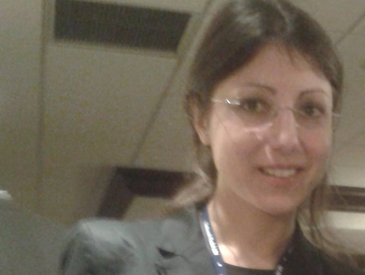I had the opportunity to do this incredible experience and I’d like to express my sincere thanks to MAPEX Centre for Materials and Processes. I have been hosted by Prof. Dr. Edwin Zondervan in the Laboratory of Process System Engineering (PSE). My role during this research visit was to develop a multi objective optimization of a carbon capture utilization and storage supply chain developed for Italy, Germany and the UK. This research is inside my PhD programme.
I’m very grateful for doing this research with Prof. Dr. Edwin Zondervan and his group. I had the opportunity to discuss and make progress on my thesis. Also I had the opportunity to improve myself, my knowledge, meet new people and new cultures. I recommend everyone to have a similar experience.
Multi-objective optimization of CCUS supply chains for the European countries with higher carbon dioxide emissions
Abstract
Global carbon dioxide emissions have increased in the last years to achieve a value of 33.1 Gt in 2018 and a concentration of 395 ppmv (IEA, 2019; Goel et al., 2015). With higher carbon dioxide concentrations there is an increase of global average temperature that, however, should be limited to 2 °C, as defined in the Paris agreement (Agrali et al., 2018). To achieve this important objective carbon capture utilization and storage (CCUS) supply chains have a strategic role and can be considered as a bridge for the development of more environment-friendly processes and for the reduction of carbon dioxide emissions.
Due to this important task, many mathematical models are developed in literature to design these systems through the single optimization. Generally, an economic objective function is considered while the target for carbon dioxide emission reduction is set as a constraint in the considered model (Hasan et al., 2013, 2014, 2015; Zhang et al., 2018; Sun and Chen, 2017; Leonzio et al., 2019a,b; Leonzio and Zondervan, 2019). Only the work of Yue and You (2015) considers simultaneously the economic and environmental objective functions of a CCUS supply chain (producing algae for biofuels), solved using the Life Cycle Optimization framework. Then there is a lack regarding the application of multi objective optimization problems to CCUS supply chains not producing only algae.
According to this considerations the novelty of this research work is evident: our previous single optimization problems developed for Italy, Germany and the UK (European countries with higher carbon dioxide emissions) are re-formulated as multi objective problems minimizing the total costs and maximizing the amount of capture carbon dioxide simultaneously. For the resolution the ε constraint and the augmented ε constraint methods are applied and compared, showing the best efficiency for the last one.
Overall, the analysis of the respective Pareto fronts shows that the CCUS supply chain for Germany is closer to the Utopia condition than the other two systems. A better tradeoff between the two objective functions is then achieved in the model describing the CCUS supply chain of Germany, even if the system has the highest costs.
References
Agralı S., Üçtug F.G., Türkmen B.A., An optimization model for carbon capture & storage/utilization vs. carbon trading: A case study of fossil-fired power plants in Turkey, Journal of Environmental Management 215 (2018) 305-315.
Goel C., Bhunia H., Bajpai P.K., Development of nitrogen enriched nanostructured carbon adsorbents for CO2 capture. J. Environ. Manag. 162 (2015) 20-29.
IEA (International Energy Agency), 2019. Global energy & CO2 status report. www.iea.org/geco/emissions/.
Hasan M.M.F., Boukouvala F., First E.L., Floudas C.A., Nationwide, regional and statewide CO2 capture, utilization and sequestration supply chain network optimization. Industrial & Engineering Chemistry Research, 53 (18) (2014) 7489–7506.
Hasan M.M.F, Boukouvala F, Floudas CA, Optimization of CO2 Capture, Utilization and Sequestration (CCUS) Supply Chain Networks, AIChE Annual Meeting in San Fransisco November 08, 2013.
Hasan M.M.F., First E.L., Boukouvala F., Floudas C.A., A multi-scale framework for CO2 capture, utilization, and sequestration: CCUS and CCU, Computers and Chemical Engineering 81 (2015) 2–21.
Leonzio G., Bogle D., Foscolo P.U., Optimization of CCUS supply chains in the UK: a strategic role for emissions reduction, 2019b, Chemical Engineering Research and Design, under review.
Leonzio G., Zondervan E., Analysis and optimization of carbon supply chain integrated by power to gas process in Italy, 2019, under review.
Leonzio G., Foscolo PU, Zondervan E., Sustainable utilization and storage of carbon dioxide: Analysis and design of an innovative supply chain, Computers & Chemical Engineering, 131, (5) (2019a), 106569.
Sun L., Chen W., Development and application of a multi-stage CCUS source–sink matching model, Applied Energy 185 (2017) 1424–1432
Zhang S., Liu L., Zhang L., Zhuang Y., Du J., An optimization model for carbon capture utilization and storage supply chain: A case study in Northeastern China, Applied Energy 231 (2018) 194–206.


